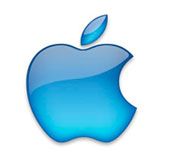 As co-founder
and longtime CEO of Apple, Steve Jobs introduced the world to a
dizzying array of groundbreaking and influential technology
products. Among them, the iMac, iPod, iPhone and iPad. And just
like the infamous " i " that prefaces
many of these revolutionary computing and communication devices,
they represent more than just a piece of hardware, they define the
individual freedom that thoughtfully-produced technology can afford
our lives.
As co-founder
and longtime CEO of Apple, Steve Jobs introduced the world to a
dizzying array of groundbreaking and influential technology
products. Among them, the iMac, iPod, iPhone and iPad. And just
like the infamous " i " that prefaces
many of these revolutionary computing and communication devices,
they represent more than just a piece of hardware, they define the
individual freedom that thoughtfully-produced technology can afford
our lives.
It makes sense that Steve Jobs' untimely passing yesterday
evening set off a worldwide remembrance and conversation of the
man's work and legacy. From forming Apple Computer with high school
friend Steve Wozniak in 1976 (whom some of you will recall from
this year's keynote speech at the BICSI Winter Conference in
January), launching the first Macintosh computer in 1984 around an
iconic Super Bowl TV
commercial, to re-joining Apple in 1997 after a years-long
hiatus to appoint himself "iCEO" and introduce the popular
candy-colored, all-in-one iMac desktop in 1998 -
the bar had already been set incredibly high - and that's just
pre-21st century!
In 2001, both the revolutionary listening device,
iPod, and its companion program,
iTunes, hit the market. It marked the beginning of
a meteoric rise for Apple, as people the world over ditched clunky
boom-box tape-decks and portable CD players in favor of the
impossibly small and bright-white click wheel of Apple's iPod (not
to mention those ubiquitous tiny white ear buds - seen on a
passenger plane near you).
In the years following its launch, the iPod changed the
landscape of the music business itself - driving consumers to
purchase individual mp3 files at a rate far surpassing physical
disc sales and ushering in the era of the web download. With each
new version, the capacity to hold more and more data increased as
the size of the device continued to shrink. 8GB, 16GB, 60GB, 160GB!
In no simpler terms, it was as if Jobs and the Apple team brought a
lifetime's worth of music and media to your pocket - a bite-sized,
gigabyte-sized data center of jazz, blues, rock n' roll, podcasts,
photos and more.
All the while, Jobs and Apple continued to refine and perfect
new operating systems, release new iMacs, introduce slimmer and
faster laptops, and still find time to usher moviegoers into a new
age of digital animation at Pixar studios, which Disney purchased
for $7.4 billion in 2006, making Jobs' Disney's largest
shareholder. With newfound wealth, Jobs moved on to his next
project, the iPhone.
Released in 2007, the iPhone wowed crowds and critics alike with
impeccable style and an impossibly easy-to-use interface, making it
the first widely accepted and revered touchscreen smartphone. Only
a few years later, the iPhone's touchscreen roots gave rise to
another, larger Apple hand-held device, the iPad.
This, Jobs claimed, would signal a new era of home computing - one
that does away with the restrictive experience of sitting at a
desktop and clicking a mouse (yet another computing innovation that
Jobs and Apple introduced way back when).
And most recently, and in ways that most closely tie Apple to
our own world of high-volume data infrastructure storage, the
recent introduction of iCloud, marking the next
major shift in computing and communication.
As Apple gets set to carry on without Jobs, his influence on the
company, and the technology world at large, lives on. The devices
which connect us grow more powerful and complex. The necessity to
manage the new data these devices create rises too.
 In true
Steve Jobs fashion, he appeared earlier this year (seen above in
this photo, courtesy of Macworld.com, in his trademark
black turtleneck, jeans and sneakers) to talk about Apple's next
"big" thing - the iDataCenter, located in rural
North Carolina.
In true
Steve Jobs fashion, he appeared earlier this year (seen above in
this photo, courtesy of Macworld.com, in his trademark
black turtleneck, jeans and sneakers) to talk about Apple's next
"big" thing - the iDataCenter, located in rural
North Carolina.
It's only fitting that so much of the digital world Jobs helped
create will make its new home in the servers, racks and cabinets of
what's sure to be a revolutionary space in its own right -
something tells us Jobs would have had it no other way. Jeff Cihocki, eContent Specialist